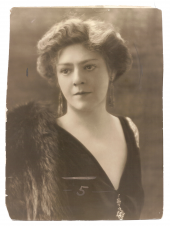Sunday, July 28, 2024 - 8:25am
Historically, presidential assassins haven't been long for this world
From John Wilkes Booth to Lee Harvey Oswald, presidential assassins and co-conspirators have had a short shelf life after their dastardly deeds. A certain rush to judgment -- human and/or divine -- is evident in the fates of:
• John Wilkes Booth: shot inside a Virginia barn 12 days after he killed Lincoln. Mary Surratt (and three other accomplices) were hanged 11 weeks after the assassination.
• Charles Guiteau: hanged June 30, 1882, after the death of President James Garfield on Sept. 19, 1881, from bullets fired by Guiteau.
• Leon Czolgosz: sent to the electric chair on Oct. 29, 1901, for the assassination of President William McKinley in Buffalo seven weeks earlier, on Sept. 6.
• Giuseppe Zangara: electrocuted March 20, 1933, for the murder of Chicago Mayor Anton Cermak and attempted murder of President-elect Franklin D. Roosevelt in Miami just 32 days before, on Feb 15.
• Lee Harvey Oswald: shot by Jack Ruby on Nov. 24, 1963, 48 hours after killing John F. Kennedy in Dallas.
No doubt about their fates. Lots of doubt about the facts and conspiracy theories behind them. Salient issues raised by "The Conspirator" in the Lincoln case include:
• The public shock produced not just by Lincoln's murder but by the stage fame of the man who did it. It was if one of the Barrymores had killed FDR, or a member of the Fonda family had shot Ronald Reagan.
• The Catholic connection. John Surratt's long flight from justice took him from Canada to England, France and Italy, sheltered along the way by sympathetic priests. In Rome, he joined Pope Pius IX's Papal Zouaves and fought to preserve the Papal States from takeover by Italian nationalists.
• The haste of Mrs. Surratt's execution. Five of nine members of the military tribunal that condemned her recommended to President Johnson -- paradoxically-- that he reduce her death sentence to life in prison. Johnson later said he didn't get or see the clemency request. The film, for dramatic effect, exaggerates Mrs. Surratt's five-minute awareness that she would be executed, but not by much: She was told on noon July 6 that she would be hanged at 1 p.m. July 7. On the scaffold, conspirator Lewis Powell's last words were, "Mrs. Surratt is innocent. She doesn't deserve to die with the rest of us."





